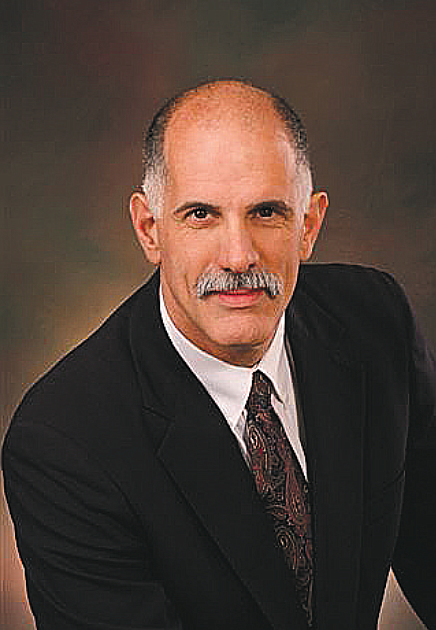
It's no secret that understanding the traditional finance world is challenging. Unfortunately, making sense of decentralized finance (DeFi) is even harder.
Decentralized finance is a growing collection of financial tools built on top of the blockchain – a digital ledger that lives across a collection of distributed servers. These platforms and protocols allow users to trade cryptocurrency, borrow and lend money, and earn interest, all without a centralized bank or third-party intermediary.
A quick Google search will return research around DeFi's unprecedented financial upside and unthinkable annual yield percentages. Similarly, you'll find even more about hacks, scams and illegitimacy within its ecosystem. Still a largely unregulated gray area, decentralized finance is a mixed bag. That being said, when approached responsibly and cautiously, DeFi can serve as a viable and legitimate financial investment option.
Regardless of your feelings toward cryptocurrency, one thing is certain: It's gaining quite a foothold. As of May 2022, there were more than $74 billion in crypto assets locked in DeFi. And as DeFi continues to gain broader adoption, there's a lot of education to be done around basic terminology, leading protocols and best practices.
That's why we've built the DeFi dictionary, a living resource for you to reference as you get acquainted with this new frontier of finance. After reading this document from start to finish, you'll have a high-level overview of the main pillars of decentralized finance.
Ethereum
Ethereum is a decentralized blockchain network, widely used for its ability to run smart contracts. Ethereum is the primary blockchain of the DeFi ecosystem.
Decentralized Application (dApp)
A decentralized application is a website or application that runs on top of the blockchain. dApps are powered entirely by smart contracts, removing the need for any centralized third party.
Smart Contract
A smart contract is a blockchain-native computer program that automatically executes once predetermined requirements are met. Smart contracts are the lifeblood of all DeFi applications and protocols.
Ether
Ether (ETH) is the native currency (or "token") of Ethereum and is used to pay transaction fees across all Ethereum-native decentralized applications. To participate in decentralized finance, you'll need two things: ETH and an Ethereum wallet.
Ethereum Wallet
A wallet is a software application or physical device that allows users to interact with a blockchain. Wallets hold users' currency and data and are interoperable across all decentralized applications. Each wallet comes with its own private and public keys. While we use Ethereum for this example, there are also wallets for other blockchains like Bitcoin and Solana.
Metamask is the most popular Ethereum wallet and is compatible with all major dApps.
Private Key
A cryptographic string of numbers that gives users access to their funds and data. Private keys are used to sign and verify blockchain transactions.
Never, ever give this out to anyone, as it's the quickest way to have your cryptocurrency stolen. You'd never give out your bank account password, so don't give out your private key.
Public Key
A public key, or "wallet address," is a string of letters and numbers that allows users to receive cryptocurrency or other tokens to their wallets. The same way someone sends an email to your email address, people send cryptocurrency to your wallet address.
Gas Fee
Individuals must pay a transaction fee (gas fee) for every function completed on a blockchain network. Gas fees (which are paid in a blockchain's native currency) are used to compensate miners in exchange for the computational power they use to verify the transaction.
For example, all Ethereum gas fees are paid in ETH.
Centralized Exchange
A centralized exchange is a regulated, for-profit entity that safeguards (and sometimes insures) users' crypto funds. Centralized exchanges such as Coinbase (COIN) still facilitate the majority of total cryptocurrency volume, due in part to their smooth onboarding experiences and ease of use.
Centralized exchanges are custodial, meaning that they hold users' private keys. This enables users to log in with a basic password, instead of needing to keep track of their private keys.
Decentralized Exchange (DEX)
A decentralized exchange (DEX) is a peer-to-peer digital cryptocurrency exchange that operates without the approval of a centralized third party or custodian. Instead, all trades and transactions are facilitated by self-executing smart contracts on the blockchain. All transactions are atomic, meaning that Coin A is sent at the same time as Coin B is received.
DEXs do away with the traditional order book, and thanks to automated market makers, you no longer need a buyer and a seller to trade.
Automated Market Maker (AMM)
Automated market makers are underlying protocols that define the price of assets on a decentralized exchange. The backbone of decentralized exchanges, AMMs allow users to trade against liquidity locked into smart contracts called liquidity pools. They also enable anyone to act as a liquidity provider (LP) as long as they meet the predetermined terms of the smart contract. All you need is sufficient liquidity in the liquidity pool and an AMM smart contract to make the market for you.
Uniswap is the most popular automated market maker, with more than $42 billion of trading volume in April 2022 alone.
Liquidity Pool
A liquidity pool is a dual-asset market that's created when liquidity providers lock an equal amount of two tokens into a smart contract. From there, buyers and sellers can trade directly against this liquidity without waiting for an order to be matched.
Liquidity Providers (LPs)
Liquidity providers supply the critical funding to the liquidity pools that power the DEX. To be an LP of a dual-asset liquidity pool, you must supply an equal value of both assets.
Let's say you're entering a Bitcoin/ETH trading pool and Bitcoin is at $20,000 and ETH is at $2,000. To be an LP in this pool, you must lock up 1 Bitcoin and 10 ETH.
In exchange for locking assets up in a liquidity pool, LPs earn a small percentage of each transaction. The total commission is proportionate to a liquidity provider's contribution relative to the entire liquidity pool. In addition, liquidity providers also receive LP tokens – a separate token representative of one's ownership stake relative to the entire pool. These tokens are exchangeable and transferable in their own right, and can be staked within the DeFi ecosystem to earn further yield.
Providing liquidity (or liquidity mining) is a great way to earn passive income on your tokens, although LPs must always be aware of impermanent loss.
Impermanent Loss
Impermanent loss is when the value of holding a cryptocurrency in your wallet is greater than that of being a dual-asset liquidity provider. Depending on how the price of an asset fares over time, you might be better off holding the asset outright instead of using it to provide liquidity to a liquidity pool. While impermanent loss is possible with any dual-asset liquidity pool, it's most likely when dealing with highly volatile assets.
Slippage
Slippage is the difference between the executed price and the initial trading price. This is particularly relevant in DeFi, where volatility in asset price and liquidity of trading pools is fairly common. When trading on decentralized exchanges, always look out for slippage and try to avoid market orders wherever possible.
Decentralized Lending
Decentralized lending is an alternative to traditional lending that uses smart contracts and blockchain technology to automate the process of providing credit. On platforms such as Compound and Aave, users can borrow and lend cryptocurrencies anonymously without the need for third-party credit approval.
Smart contracts record all lending transactions and automate the collection of interest on all loans. Decentralized lending is another great way to earn passive income on your crypto.
Staking
Staking is the process of locking up cryptocurrency to help secure and maintain the integrity of the blockchain through proof-of-stake consensus. In return, stakers are rewarded with a portion of the block reward generated by the network. "Yield farmers" are able to earn a passive income by staking their coins or LP tokens in liquidity protocols such as Aave and Curve. NFTs also can be staked to earn DeFi yield.
Yield Farming
Yield farming is the process of using various DeFi platforms and protocols to chase the best returns. It involves continuous lending, borrowing, staking of cryptocurrency to earn interest, and then reinvesting this interest in new pools to earn even more interest. Yield farming is a very-high-risk, very-high-reward game.
Stablecoins
Stablecoins are cryptocurrencies that are pegged to the value of government-backed currencies, such as the U.S. dollar. While most crypto assets are highly volatile, stablecoins are used to protect against these fluctuations. While the most popular stablecoins, such as USDC, are backed by U.S. dollar cash reserves, other stablecoins are backed by algorithms or other cryptocurrencies.
Relative to Bitcoin and Ethereum, fiat-backed stablecoins like USDC and Tether are a lower-risk way to explore the benefits of DeFi. To date, stablecoins have mostly held strong. But with the recent crash of Terra, many question whether they will be able to hold their peg over time.
By now, you should have a strong understanding of the DeFi basics. But I want to take a moment to reiterate one important note: These topics are very complex, with many proposing high levels of risk. Always do your own research before approaching any investment, and don't get caught up in the FOMO.
We plan on updating this dictionary regularly as the world of DeFi rapidly evolves.
Adblock test (Why?)



